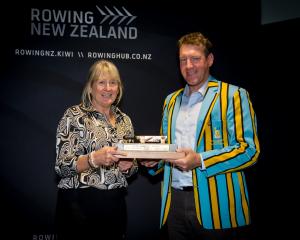The annual camps in the city were started three years ago by former Otago University rower Ryan Sparks, the managing director of Sparks Consulting in Washington DC.
He spent a year studying politics in Dunedin in 2003 and was a member of the Otago University eight that competed in Taiwan.
Part of his business is to advise students, who would like to row at a United States university, how to get through the recruiting process and get a scholarship.
The Dunedin-based camp caters for a range of different rowers and gives them international experience in a New Zealand environment now recognised as the hot bed of world rowing.
The rowers are in their final year at high school in the United States.
''The aim of the programme is to give them international experience and a good ergometer score to help them get into the universities of their choice,'' Otago University Students' Association aquatic centre manager Glen Sinclair said.
The rowers spend five weeks in New Zealand - four weeks training in Dunedin and the last week travelling to the Catlins, Invercargill and Queenstown.
''They row on the river at Invercargill and at Lake Hayes in Queenstown,'' Sinclair said.
New Zealand is the only rowing country used at the moment but it is also planned to take a camp to the United Kingdom next year.
Sparks rates the university aquatic centre as ''on par with some of the best aquatic centres in the US and many other places in the world.
''That is a concrete reason why we can send kids here and they can develop as rowers,'' he said.
''The level of sports science in New Zealand is higher than the level of sports science in the US.''
Sparks was impressed by the level of rowing expertise he found at Dunedin in 2003 and wanted other Americans to gain that experience as well.
''New Zealand has some of the best rowing people in the world,'' Sparks said.
''I like the humility of New Zealanders, their work ethic and their kindness. I hope that those things will rub off on our students.''
This is the third year that the camps have been held in Dunedin.
''The boys and girls who come here want to push their boundaries,'' Sparks said.
''Kiwi culture has an ability to be supportive and yet allow enough freedom for these kids to grow in a way that would not be possible in America.''
Competition to get into United States universities is fierce and the acceptance rate has dropped to less than 10% at some colleges.
''American families rely more and more on special talent sets that will connect with universities in such a way to provide a hook for the admissions process,'' Sparks said.
''Coming to New Zealand helps the rowers better understand who they are in the sport and assert that knowledge in the admissions process.''
The value of the time spent in New Zealand is measured in the level of maturity the students gain.











